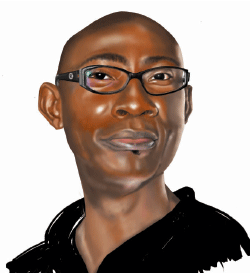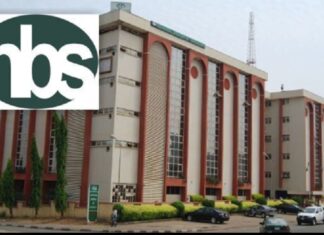Exactly 17 years today, Nigeria embraced democratic rule with its good, bad and ugly sides. Some call it civil rule because democratic tenets are far from being on the ground.
Regardless, since 1999, the country has been cruising on the civilian ship, rejecting all the seemingly “palatable” indices of military rule that produced leaders who led Nigeria to perdition and created more socio-political, economic, religious and cultural problems.
May 29 is a watershed in this democratic journey and every year governments at the federal and state levels showcase their gains while looking forward to delivering better electoral promises.
Until last year, when fate thrust the Peoples Democratic Party (PDP) to the opposition, celebrating Democracy Day at the centre was its exclusive preserve as the party in the saddle before the All Progressive Congress (APC) came on board.
The APC under President Muhammadu Buhari which took over on May 29, 2015 is now calling the shots.
While the federal government controlled by the APC is struggling to tell Nigerians who massively voted for it last year while things have not really changed despite the Change slogan that brought it into power, the situation is different in the states.
One of them is Imo. Though 40 years, being created on February 3, 1976, Imo to many perceptive minds is a workman’s farm because of infrastructure and key projects that dot its nooks and crannies.
Although opinion is divided among indigenes on the giant strides Governor Rochas Okorocha and his Imo Rescue Mission team have made, a trip to the Eastern Heart Land would convince doubting Thomases about the existence of such infrastructure since Okorocha’s administration came into office five years ago.
Those who belong to the School of Thought that Okorocha and his team have been loafing around these five years have their sympathisers.
They are probably emboldened by one of Vladimir Lenin’s popular saying that “a lie told often enough becomes the truth” – meaning that the more they lie and disparage the Okorocha team for lack of performance, the more the public buys into it and believes.
However, if “seeing is believing” is our guide, those who recently visited the state and saw what is on the ground are concerned that Imolites must have been fed with lies by people determined not to see or hear anything good about Okorocha, and by extension, the state.
And that does not portray those of us from Imo in good light.
Going by what Aristotle says, “We are what we repeatedly do” and “it is the mark of an educated mind to be able to entertain a thought without accepting it”, one could not but subject oneself to the rigours of trying to corroborate or dismiss the reasons for the vitriolic campaign against Okorocha and his policies.
For one, perception can be dangerous. It can make or break someone or something. Imo is one state whose governor is facing the worse perception from the state’s political class for reasons many fathom can only be political.
It becomes more dangerous when the elite; the so-called leaders in Imo who ought to provide a leadership trajectory for its future, its people and unborn generation latch unto and make a business of it.
In all these, they tend to forget what Plato said: “Wise men talk because they have something to say; fools, because they have to say something” and “We can easily forgive a child who is afraid of the dark; the real tragedy of life is when men are afraid of the light.”
When, therefore, Okorocha’s Chief Press Secretary, Sam Onwuemeodo, contacted senior editors from the South East to honour his principal on May 6 for a meeting on May 7, a good number of us reasoned that Okorocha must have come to terms with Socrates deduction that “the life which is unexamined is not worth living.”
Perhaps Okorocha felt the time for neutral assessors to scrutinise his administration in the light of insinuations of having done nothing and claiming to have done several things is now.
During the visit, the media executives saw things they did not even envisage – intimidating projects and infrastructure that Okorocha’s contemporaries in other states would not have dared venture into.
It was even arguable if Okorocha’s projects have not dwarfed the ones all the governors who came before him had done put together. They wondered how he gets the resources.
The editors saw good roads that form part of the 600,000 kilometres of roads so far constructed around the state. They saw completed (ready to commission) bridges and the one under construction.
They saw completed functional hospitals and those still under construction in all the 27 local government areas of the state that are up to 80 per cent completion.
They saw well-built and equipped modern primary and secondary schools by the administration.
They saw a Government House that can compete with any one in any part of the world. They saw a Governor’s Lodge ready for commissioning which any son or daughter of Imo would be proud to inhabit if he/she gets the mandate of the people to govern them.
The editors saw edifices that have the capacity to restore the dignity of our traditional institution. They saw a Chapel, first of its kind in Government House, that serves as a place for spiritual edification for highly religious Imolites.
They saw Odenigbo Presidential Guest House for visiting high-profile personages. the editors saw an expanded and well-furnished Executive Committee (Exco) Chambers (Sam Mbakwe Executive Chambers) now comfortably seating where the former miniscule Douglas House was.
They saw the Imo State Artisan City on Naze Road where the government proposes to relocate traders from Alaba International Market in Lagos ready to head home for better developmental integration.
The government targets 3,000 jobs from that project.
The Ochiedike Diagnostic Centre, the Heroes Square, Odenigbo Cultural Centre, Imo Freedom Park, the New Concorde Hotel, New Commissioners Quarters, 7,000-capacity Imo International Conference Centre, Imo Library; all located in the Owerri Capital Territory are good sights to behold.
What about the Eastern Palm University and Prince Hotel in Orlu, and the Princes Hotel in Okigwe?
The editors saw an Owerri Capital Territory that has undergone a transformation that puts a lie to the campaign by Okorocha’s political traducers who brainwash Imolites that he is on a deceit lane.
They saw the first, second and third inland roads built by Okorocha and many others crisscrossing Aba Road, Orlu Road, Okigwe Road, Freedom Park Road, Ochiedike Road; all emptying into the New Owerri, making driving and movement a pleasure within the capital city.
The editors saw more than 1,000 brand new KIA cars procured for the proposed Imo Taxi Scheme that would help tricycle operators migrate into a more comfortable inland transport business.
One media chief executive, whose father is a key player in Imo politics and belongs to the PDP, was so excited by the projects she literally danced at the sight of most of them.
Okorocha may not be the best governor in the country, but in the past five years of his administration, he has displayed the spirit of a workman poised to change the face of his state. He simply needs all the support Imolites can muster.
From security to poverty alleviation to infrastructure development, he has shown that Imo can indeed be better if the people show deeper commitment.
His idiosyncracies notwithstanding, a governor who crashed poverty rate from 56 per cent in 2010 to 14 per cent currently, according to a World Bank report, cannot be said to be unfocused, and to say Imo needs more of such leaders is to say the least.
One of the ways Ndi Imo can help Okorocha is by ensuring that whoever takes over from him in 2019 surpasses his record. That is how Imo can develop further.

- Advertisement -
- Advertisement -
Must Read
NBS confirms hijacked of its website by hackers, warns Nigerians
NBS prior to the incident, published its monthly crime experience and security perception survey report
By Kehinde Okeowo












